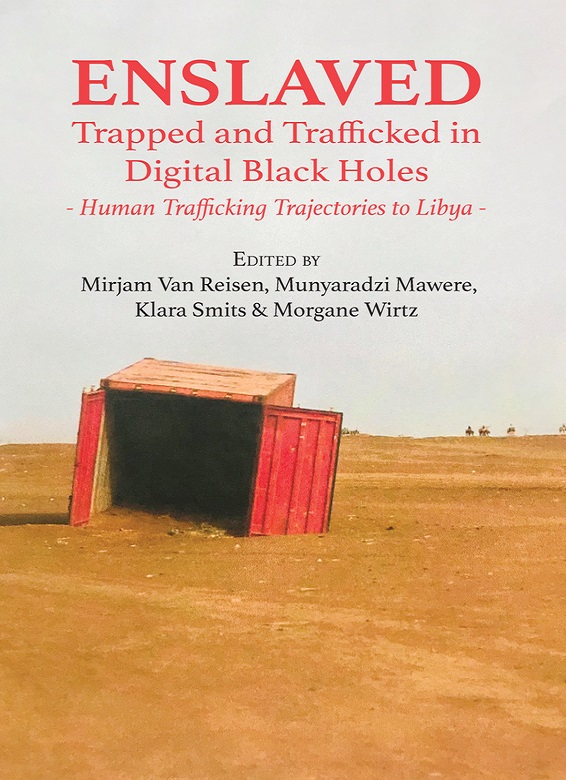edited by Mirjam van Reisen, Munyaradzi Mawere, Klara Smits and Morgane Wirtz
Human Trafficking Trajectories to Libya
Eritrean refugees are being trafficked and enslaved in Libya, where they are tortured to force relatives to pay a ransom for their release. Labelled with a digital code, they are moved along in the possession of the traffickers through a series of ‘black holes’, in which their access to digital technologies and connectivity is highly controlled. They are tortured, abused, extorted and subjected to sexual violence. Many die along the way. If they make it to the Mediterranean Sea, they risk being intercepted and returned to Libya or dying at sea. Over the period of this study (2017–21), it is conservatively estimated that at least 200,000 men, women and children have fallen victim to human trafficking for ransom in Libya, and the cumulative value of this trade for that period is estimated at over 1 billion USD. This detailed ethnographic study identifies the routes, modus operandi, organisation, and key actors involved in the human trafficking for ransom of refugees and migrants, who are desperately in need of protection. The book is part of the GAIC Research Network and African studies series published by Langaa RPCIG and makes an important contribution to the literature on human trafficking, migration studies, African studies, modern slavery, social protection and governance.


| ISBN | 9789956553129 |
| Pages | 826 |
| Dimensions | 229 x 152mm |
| Published | 2023 |
| Publisher | Langaa RPCIG, Cameroon |
| Format | Paperback |



